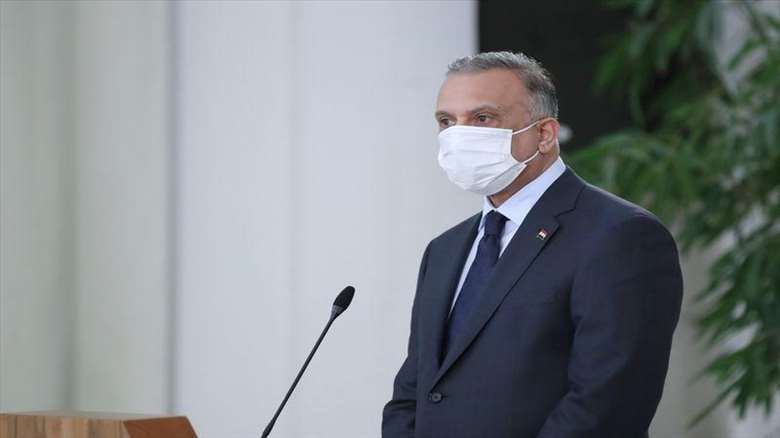UN welcomes Iraqi PM’s proposal for early elections
Iraqi Prime Minister Mustafa al-Kadhimi proclaimed on Friday his intention to hold early national elections in the summer of 2021, a decision which was welcomed by the United Nations.

ERBIL (Kurdistan 24) – Iraqi Prime Minister Mustafa al-Kadhimi proclaimed on Friday his intention to hold early national elections in the summer of 2021, a decision which was welcomed by the United Nations.
"I announce the 6th of June 2021 as the date for the early parliamentary elections, and we will utilize all our efforts to protect it and make it successful," al-Kadhimi said in a televised speech.
The Iraqi parliament must next ratify the proposed election date, originally scheduled for May 2022.
An early election is one of the main demands of those taking part in a massive protest movement that has been raging since October. After often violent responses to demonstrators by security forces and Iran-backed militias of the Popular Mobilization Forces (PMF) left hundreds dead and tens of thousands wounded, al-Kadhimi's predecessor Adil Abdul Mahdi and his entire cabinet resigned.
Over the past week, Iraqis again took to the streets to demand, among other things, an improved standard of living and improved public services, especially electricity in the sweltering summer heat as temperatures in many parts of the country top 50 degrees Celsius (122 degrees Fahrenheit).
Read More: Dozens of casualties as Iraqi protests surge
The United Nations Assistance Mission for Iraq (UNAMI) welcomed the prime minister's proposal in a statement that read, "Early elections fulfil a key popular demand on the road to greater stability and democracy in Iraq. The United Nations is ready to provide support and technical advice as requested by Iraq to ensure free, fair and credible elections that win the public’s trust.
"Properly conducted credible, free, fair and inclusive elections can re-energize the political system and build public confidence, giving the people a voice and realizing their aspirations for better representation," said the head of the UN mission in Iraq, Jeanine Hennis-Plasschaert.
She added, "It is the responsibility of the government, parliament, political parties, and other stakeholders to jointly ensure free, fair and credible elections in a conducive environment that places the interests of the country above all other considerations."
"We are confident that all the political forces want to see Iraq emerge from its crises and prosper. And as always, these elections will be led by Iraq and Iraqi ownership," the statement concluded.
Violence and allegations of fraud have marred previous elections in the embattled nation. The most recent parliamentary vote in 2018 witnessed the lowest turnout since the former regime was toppled in 2003, with only 44.5 percent turning out, according to official data.
Since the fall of the former Baathist regime in 2003, anti-government demonstrations have been a common sight in Iraq, usually decrying what they see as an endemically corrupt political elite that has failed to address long-held grievances of a beleaguered public.
Editing by John J. Catherine